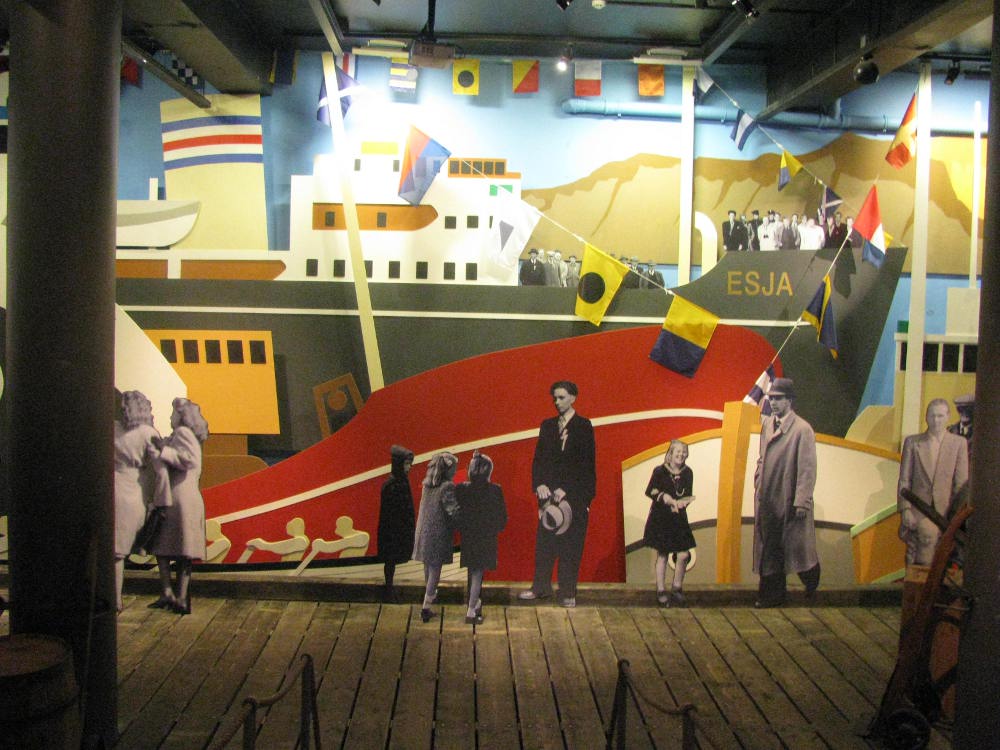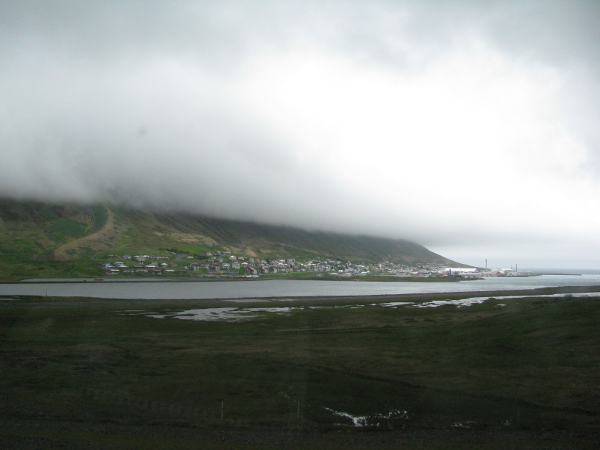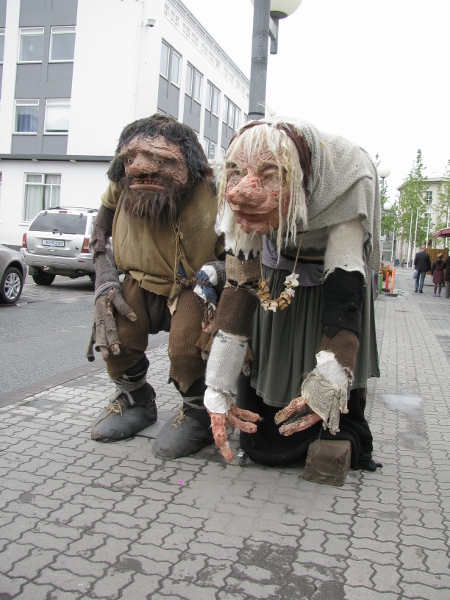Smoky vikings of Smoky Bay. Posted by hulda on Jul 31, 2014 in Icelandic culture, Icelandic customs
 As I was browsing through my notes about hljóðbreyting (= metathesis) for another entry that I currently have in the works I found something interesting that I thought might amuse you while not being quite as heavy as learning the theory of different sound changes. I understand many of you, dear readers, have recently suffered a heatwave or are still in process of suffering one, so let’s keep things light and fun instead.
As I was browsing through my notes about hljóðbreyting (= metathesis) for another entry that I currently have in the works I found something interesting that I thought might amuse you while not being quite as heavy as learning the theory of different sound changes. I understand many of you, dear readers, have recently suffered a heatwave or are still in process of suffering one, so let’s keep things light and fun instead.
In London live the Londoners, in Helsinki Helsinkians, in Reykjavik Reykjavikians. Or as you would say in Icelandic: Í Lundúnum búa Lundúnabúarnir, í Helsinki Helsinkibúarnir, í Reykjavík Reykvíkingarnir.
But wait, isn’t something missing from the inhabitant? That’s right, somehow the genitive ending got dropped off from the city name. This is not even one of the worst of most confusing city name vs. inhabitant name there is and there’s no proper grammatical reason behind it, far as I know. I mean I’ve written to the side of the note “professor does not know why it is so, we have to just learn it by heart” so I assume someone in class asked about it. 😀
So let’s have a look at who lives where. For foreign cities the process is quite straight-forward: city name + búi (= inhabitant) usually does the trick, and the city name is often in genitive form such as in Lundúnabúi. The only time you’ll be stumped is if the city has an Icelandic name, which indeed sometimes happens, as there’s no way you’ll be able to guess that in advance. One key could be “would Icelanders of old have known of this place” but that’s not a waterproof rule – just look at Helsinkian. Yet a person from Bergen, Norway, is actually from Björgvin if you ask an Icelander, and is therefore not a Bergenabúi but a Björgvinjarbúi! To confuse you further, though Björgvin is also a male name the city of Björgvin is grammatically a feminine.
The weirdest ones are from Iceland itself, of course. Just look at these town and area names and their matching inhabitants:
In Ísafjörður lives an Ísfirðingur and in Siglufjörður a Siglfirðingur. But a person from Vestfirðir is also a -firðingur – Vestfirðingur. All places with names ending -vík do the same as Reykvíkingur, they drop the genitive ending: Keflvíkingur come from Keflavík, Grindvíkingur from Grindavík. In Suðurland lives the Sunnlendingur, in Norðurland the Norðlendingur, in Austurland an Austlendingur.
Don’t think the above helps you at all… not all places with identical endings have the same form for inhabitants. You’d think that since Borgarnes is the home of a Borgnesingur, Seltjarnarnes would host a Seltjarnarnesingur? Nope! A person who lives in Seltjarnarnes is a Seltirningur! Doesn’t sound logical? Don’t worry, you’re not going insane – there’s very little logic and a very long history of spoken language that has shaped these words into what they are today.
Some really seem random when you look at them. Selfoss has a Selfyssingur. Garðabær is where the Garðbæingur lives. Kópavogur has a Kópavogsbúi, and here I’ve also written in my notes “…but no one knows exactly why”.
However, there are some rules that come into play in real life though they have no place in theory. You would say that a person who lives in Hafnarfjörður is a Hafnfirðingur but you’d soon be shouted down by a group of angry Hafnfirðingar protesting that this is only halfway correct. To actually be a Hafnfirðingur you’d need to have had at least three previous generations living in the town, else you’re just your previous home town member f.ex. a Reykvíkingur living in Hafnarfjörður. And that, they insist, makes a huge difference in your social status and whether you can be considered a real Hafnfirðingur or just an uppity newcomer.
All those town and people names look like pronunciation trouble… and that they indeed are. Here’s how you pronounce them.
Ok, so not all places are like this and Hafnarfjörður gets a mention here for being a little unusual in this sense. Most areas, towns and villages don’t share this same mindset though it’s true that the smaller the place the stronger the opinion. You’ll have to prepare though that in many areas you’ll not immediately be considered a local and will therefore not instantly gain the name, it’ll take some years (though happily not three generations) before you’ll become one of them. And still… you may live in Iceland for thirty years and realize that to your neighbours you’re still “the American”, “the Italian”, “the Japanese” or whatever your country of origin is – stress on origin by the way, Icelanders are really big on this topic. If they only know you’ve moved in from the USA you’ll be considered a Bandaríkjamaður (= American) but if they find out you were actually born in Sudan you’ll immediately turn Sudanese, a Súdanbúi.
What about Hulda then? After four years in Breiðholt, a suburb with a reputation for foreigners living here, would I be a Breiðhiltingur? You guessed it – only in theory. I could even change my nationality but to the Breiðhiltingar that I know Hulda is and possibly always will be “that Finnlendingur“. 😀

Build vocabulary, practice pronunciation, and more with Transparent Language Online. Available anytime, anywhere, on any device.
About the Author: hulda
Hi, I'm Hulda, originally Finnish but now living in the suburbs of Reykjavík. I'm here to help you in any way I can if you're considering learning Icelandic. Nice to meet you!






Comments:
Ragnheiður:
You know a person from Finland is “Finni”. It like some countries are named after the nation and some nations named after the country. So we get “Íslendingur”, “Grænlendingur” and “Englendingur” but “Finni”, “Skoti” and “Íri”. (And I only included countries that end in land)
hulda:
@Ragnheiður …I made some really weird noises when I realized that I’m also a Finni. In Finnish, you see, “finni” = pimple! XDDDDDD
But Finnlendingur as a nationality exists as well, and if we’re specific it means a Fenno-Swede (at least according to the thesaurus) while Finnskur is used to describe a Finnish-Finn. Icelandic is… a complicated language. Maybe using just “Finni” is simplest, besides it will definitely make Finnish people smile. 😀